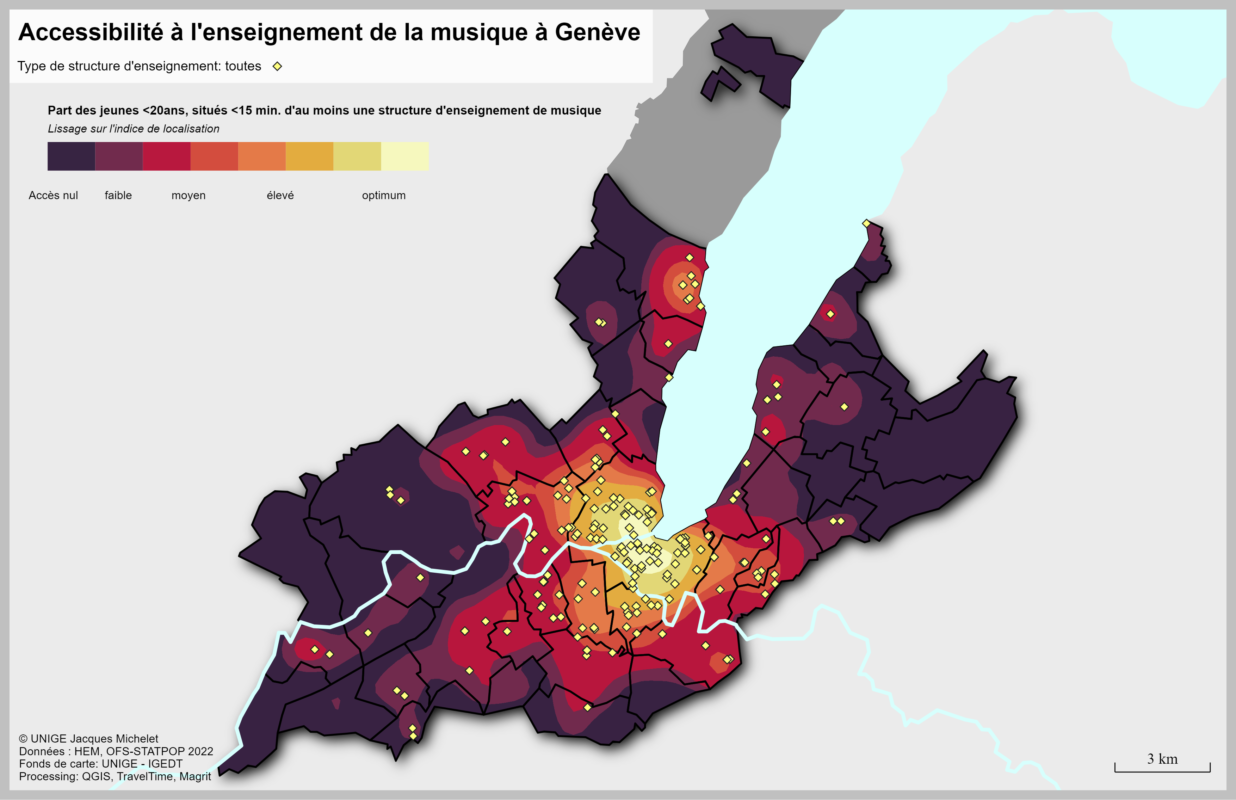COVID19 - a psychological test for musicians

A year ago, cultural life was abruptly interrupted, and this rupture not only revealed the fragility of our own existences and life projects, it also raised awareness of addictions, the importance of an intact healthcare system and the link between socio-economic conditions and health.
The music sector is one of the hardest hit, as music creators face drastic restrictions in their profession, feel devalued as "systemically irrelevant", and have to face the reality that the already highly competitive market will only recover very slowly. Surveys carried out in European countries have revealed that 20 to 40 % of music creators expect to have to leave the music business to make a living. Musicians describe this transition as a psychological ordeal: both a need to make music and the triggering of fears while doing so.
Finding a way to cope with uncertainty
While professional associations unite to campaign for better framework conditions and support funds, the counsellors and therapists of those affected are looking for individual ways to minimize the health consequences and find a way to cope with the uncertainty. In the field of medicine usually dedicated to musicians, the focus is generally on performance-related problems resulting from overtraining or misuse of instruments in the performance of music. For example, musculoskeletal complaints, tinnitus or performance anxiety. At present, existential concerns and psychological symptoms are the main reasons for contacting us.
We all know that the crises that have preceded them, in any sector, usually lead to an increase in anxiety symptoms.
With a latency of a few months, an increase in depressions, addictions and suicides could be expected, and this negative outlook was confirmed. For this reason, the contact centers that were initially intended to cover the needs related to infection fears that were at the forefront increased their capacity, but soon these needs were overtaken by concerns that led to job-related burnout and loss of money. Finally, fears arose about the so-called new normal, and some people lost confidence in their own abilities as a result of this long, forced hiatus. Others blame themselves for not having enough creative work from the crisis period to show for it, and support is often needed to overcome motivational problems. Reasons for this can be, for example, lack of stimulation, stress-related disorders or a depressed mood.
Musicians are a highly heterogeneous group, both in terms of personality and forms of employment: there are no patented recipes. What's special about musicians is that they've been concentrating on playing music from a very early age, and are less familiar with other activities that might compensate for this. Their identity is more closely linked to their profession than to professions learned along the way. They often put themselves under pressure to perform, often striving to achieve an ideal. Their highly specialized training makes it difficult for them to retrain, and the debate on social relevance affects them personally. Furthermore, there is a widespread assumption that artists know how to help themselves by virtue of their creativity, or even that they are driven by precariousness. This only applies to a minority, whereas stress generally tends to reduce creativity.
Promoting resilience and individual coping strategies as protection
To protect mental health, the promotion of general resilience and individual coping strategies are useful. While resilience is the ability to successfully overcome adversity and setbacks, it is not an immutable trait but can, to some extent, be developed. Experiencing social support, maintaining a realistic outlook with a slightly optimistic note and recognizing one's own success are key factors. The knowledge that previous stresses have been overcome is also protective. In the current crisis, young people are in the process of acquiring this experience and are therefore more vulnerable than those with more extensive life experience.
The recommendations that have now become commonplace - maintain contact, direct thoughts towards positive things, use information media sparingly and purposefully, get enough exercise, eat a balanced diet, sleep regularly - are the result of research into resilience and knowledge of the link between the nervous and immune systems and the psyche. Musicians benefit in this case from the fact that they have already acquired good self-discipline through many years of practice, and know that success can only come after many attempts.
For the individual, clarifying one's own identity and thus stabilizing self-esteem is a frequent topic. People who react to external threats in an excessively fearful and evasive way, or in an excessively defensive and angry way, are particularly vulnerable. It's important to have information that enables you to accept your own reaction as an understandable human response to the circumstances, and to put your demands on yourself into perspective. Then, it's often a matter of giving oneself room for manoeuvre and pursuing goals that may be within one's reach, such as finding other paid work, practising a new repertoire, recording records or diversifying one's activities. Already, more and more people are taking continuing education courses aimed at broadening their professional field, such as artistic teaching, management or fund-raising. The prospect of a "plan B" can be a relief, even if it proves unnecessary in the end. Sometimes, without the external pressure of performance, with a novice mindset, it becomes possible to rediscover one's instrument and the pleasure of experimenting, and to rediscover a childlike joy in playing that had previously disappeared.
Contributing to social health through music
The desire for music - especially live performances - is also widespread among the public and amateur musicians. They, too, are being deprived of an important resource: music as a universal means of providing emotional and social support. Restrictions are having a negative impact on people's overall health. This crisis highlights not only precarious living conditions, but also the contribution made by musicians to social structures and health.

A year ago, cultural life was abruptly interrupted, and this rupture not only revealed the fragility of our own existences and life projects, it also raised awareness of addictions, the importance of an intact healthcare system and the link between socio-economic conditions and health.
The music sector is one of the hardest hit, as music creators face drastic restrictions in their profession, feel devalued as "systemically irrelevant", and have to face the reality that the already highly competitive market will only recover very slowly. Surveys carried out in European countries have revealed that 20 to 40 % of music creators expect to have to leave the music business to make a living. Musicians describe this transition as a psychological ordeal: both a need to make music and the triggering of fears while doing so.
Finding a way to cope with uncertainty
While professional associations unite to campaign for better framework conditions and support funds, the counsellors and therapists of those affected are looking for individual ways to minimize the health consequences and find a way to cope with the uncertainty. In the field of medicine usually dedicated to musicians, the focus is generally on performance-related problems resulting from overtraining or misuse of instruments in the performance of music. For example, musculoskeletal complaints, tinnitus or performance anxiety. At present, existential concerns and psychological symptoms are the main reasons for contacting us.
We all know that the crises that have preceded them, in any sector, usually lead to an increase in anxiety symptoms.
With a latency of a few months, an increase in depressions, addictions and suicides could be expected, and this negative outlook was confirmed. For this reason, the contact centers that were initially intended to cover the needs related to infection fears that were at the forefront increased their capacity, but soon these needs were overtaken by concerns that led to job-related burnout and loss of money. Finally, fears arose about the so-called new normal, and some people lost confidence in their own abilities as a result of this long, forced hiatus. Others blame themselves for not having enough creative work from the crisis period to show for it, and support is often needed to overcome motivational problems. Reasons for this can be, for example, lack of stimulation, stress-related disorders or a depressed mood.
Musicians are a highly heterogeneous group, both in terms of personality and forms of employment: there are no patented recipes. What's special about musicians is that they've been concentrating on playing music from a very early age, and are less familiar with other activities that might compensate for this. Their identity is more closely linked to their profession than to professions learned along the way. They often put themselves under pressure to perform, often striving to achieve an ideal. Their highly specialized training makes it difficult for them to retrain, and the debate on social relevance affects them personally. Furthermore, there is a widespread assumption that artists know how to help themselves by virtue of their creativity, or even that they are driven by precariousness. This only applies to a minority, whereas stress generally tends to reduce creativity.
Promoting resilience and individual coping strategies as protection
To protect mental health, the promotion of general resilience and individual coping strategies are useful. While resilience is the ability to successfully overcome adversity and setbacks, it is not an immutable trait but can, to some extent, be developed. Experiencing social support, maintaining a realistic outlook with a slightly optimistic note and recognizing one's own success are key factors. The knowledge that previous stresses have been overcome is also protective. In the current crisis, young people are in the process of acquiring this experience and are therefore more vulnerable than those with more extensive life experience.
The recommendations that have now become commonplace - maintain contact, direct thoughts towards positive things, use information media sparingly and purposefully, get enough exercise, eat a balanced diet, sleep regularly - are the result of research into resilience and knowledge of the link between the nervous and immune systems and the psyche. Musicians benefit in this case from the fact that they have already acquired good self-discipline through many years of practice, and know that success can only come after many attempts.
For the individual, clarifying one's own identity and thus stabilizing self-esteem is a frequent topic. People who react to external threats in an excessively fearful and evasive way, or in an excessively defensive and angry way, are particularly vulnerable. It's important to have information that enables you to accept your own reaction as an understandable human response to the circumstances, and to put your demands on yourself into perspective. Then, it's often a matter of giving oneself room for manoeuvre and pursuing goals that may be within one's reach, such as finding other paid work, practising a new repertoire, recording records or diversifying one's activities. Already, more and more people are taking continuing education courses aimed at broadening their professional field, such as artistic teaching, management or fund-raising. The prospect of a "plan B" can be a relief, even if it proves unnecessary in the end. Sometimes, without the external pressure of performance, with a novice mindset, it becomes possible to rediscover one's instrument and the pleasure of experimenting, and to rediscover a childlike joy in playing that had previously disappeared.
Contributing to social health through music
The desire for music - especially live performances - is also widespread among the public and amateur musicians. They, too, are being deprived of an important resource: music as a universal means of providing emotional and social support. Restrictions are having a negative impact on people's overall health. This crisis highlights not only precarious living conditions, but also the contribution made by musicians to social structures and health.








